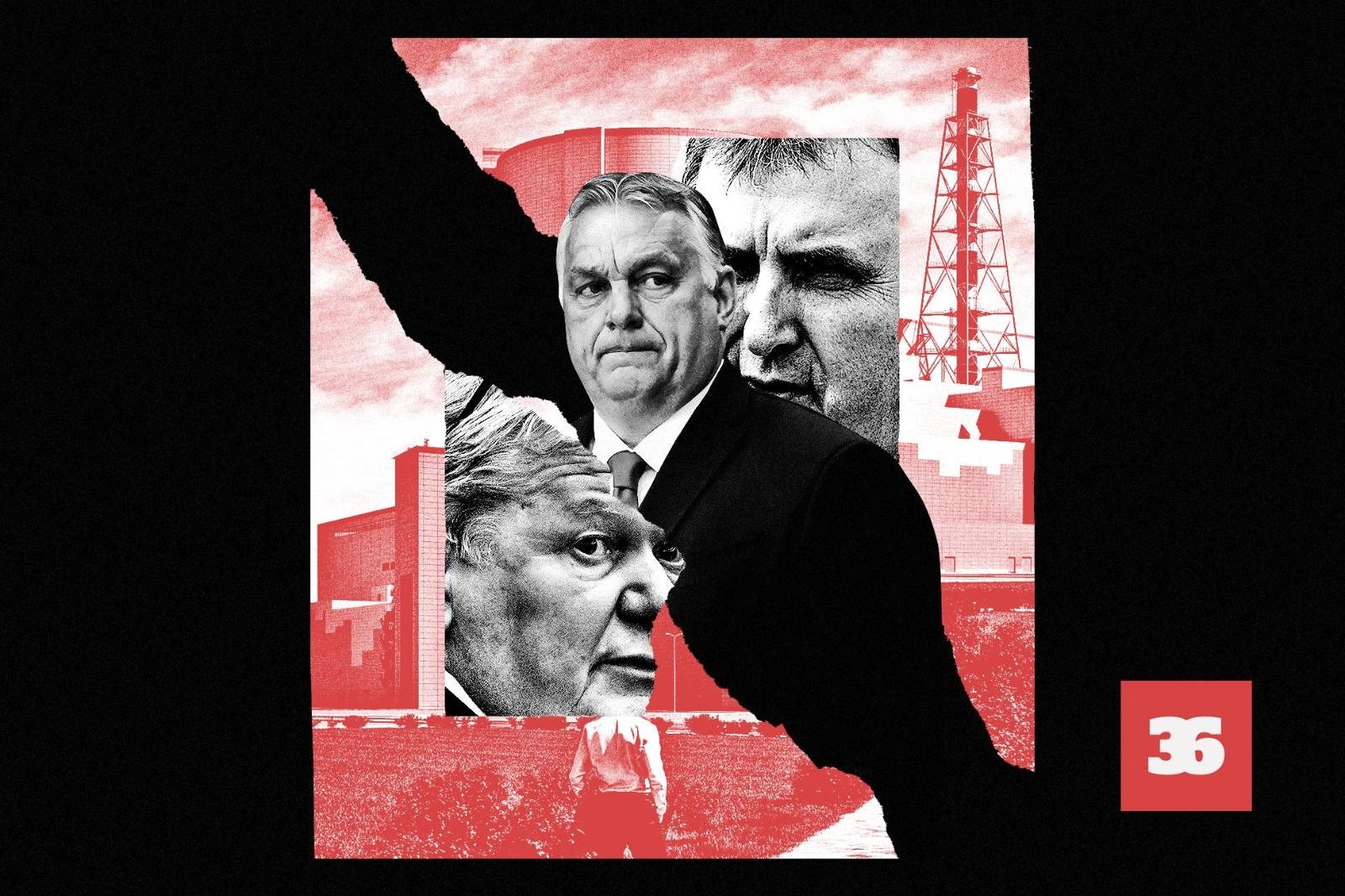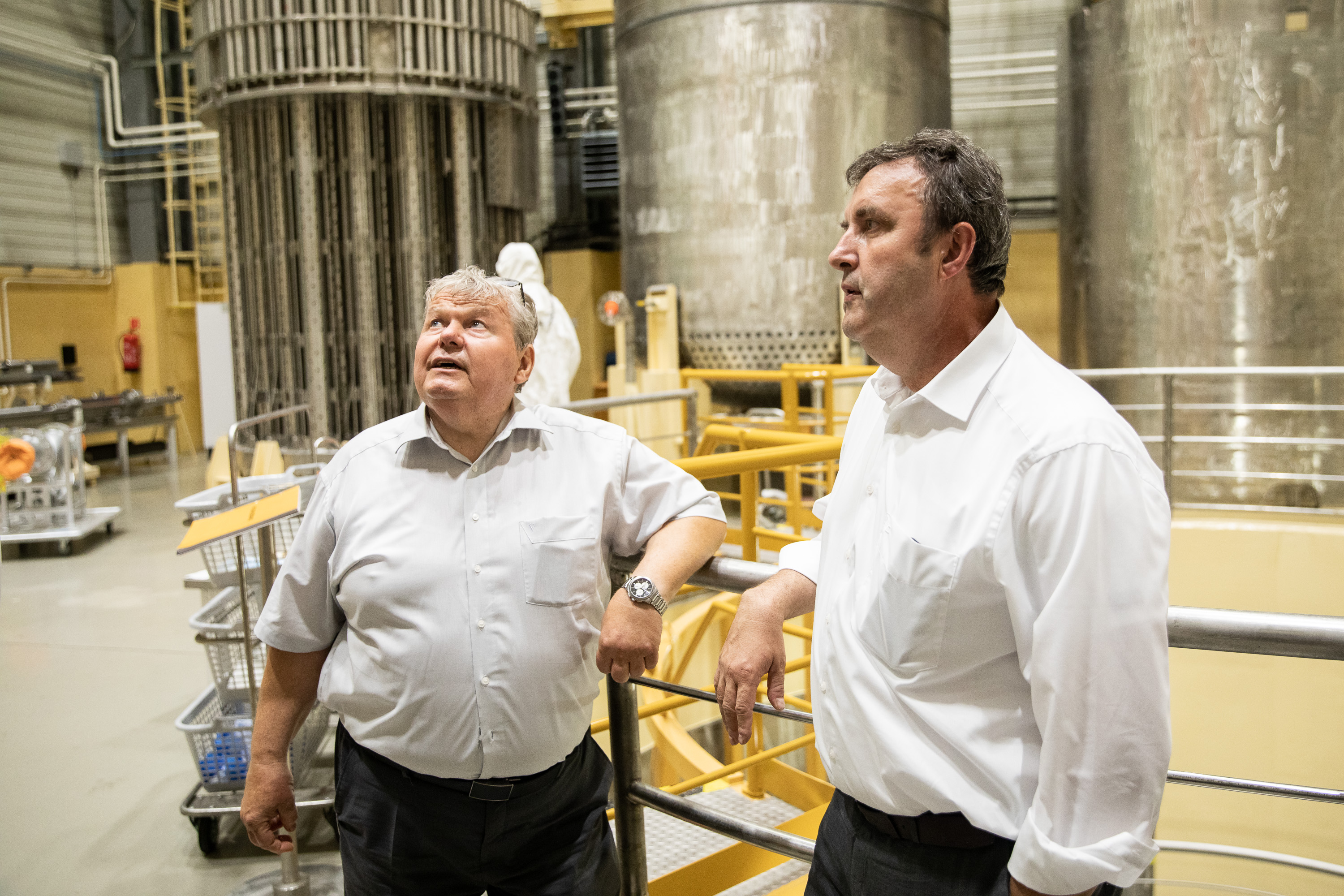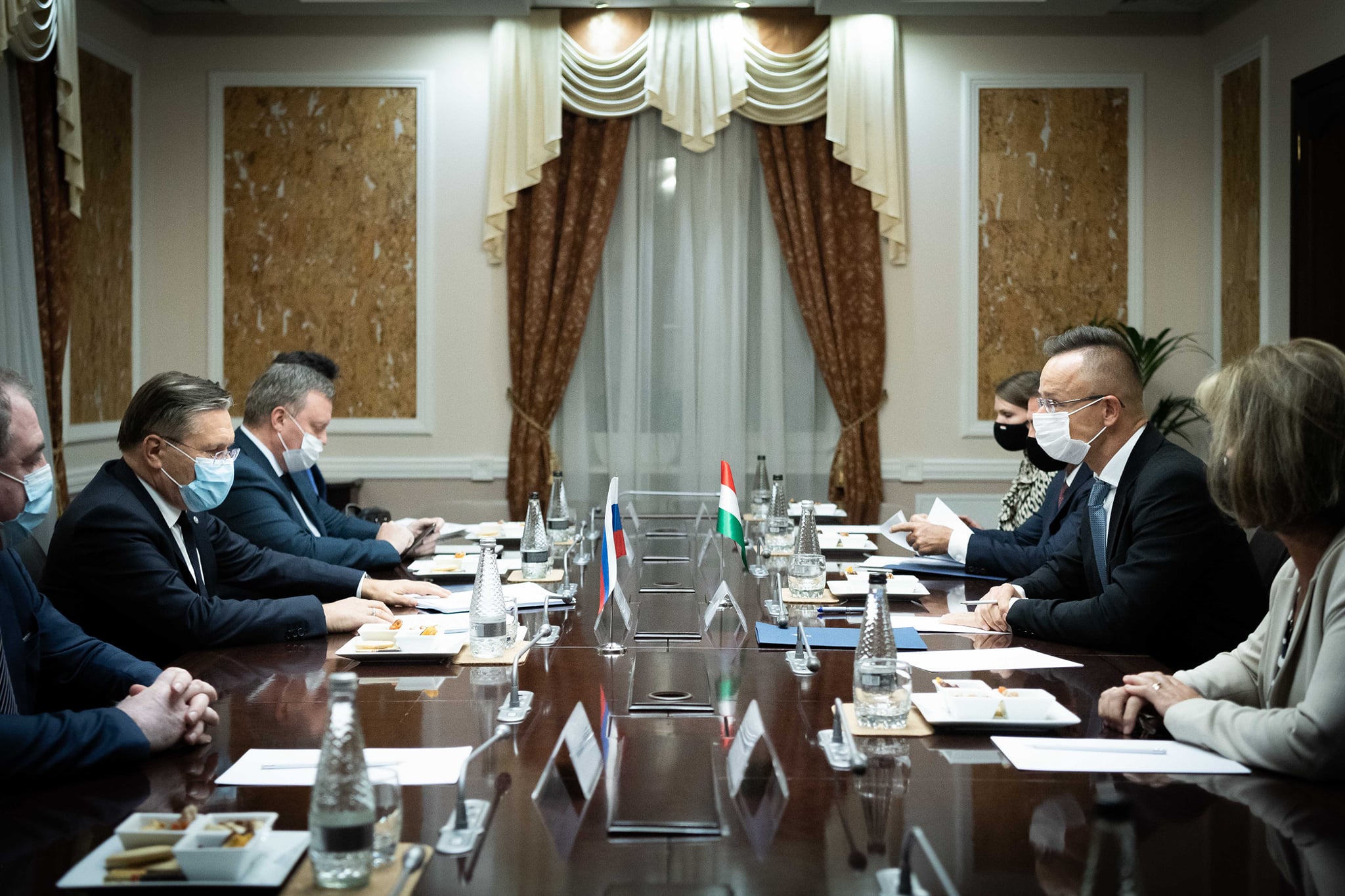Inside the internal government conflict over the permit for the controversial Paks 2 nuclear power plant

An important discussion with a crucial impact on the future of the Paks 2 project took place in the building of the Ministry of Innovation and Technology in Budapest in mid-September. Minister László Palkovics and the head of the Hungarian Atomic Energy Authority, a state institution under his supervision, met to discuss the Paks license request.
At that time, there were only two weeks left for the Authority to decide whether to issue the construction permit based on Russian project plans for the new nuclear power plant. Acting director-general Szabolcs Hullán informed minister Palkovics that the Authority was willing to issue the permit, paving the way for the construction of the new blocks, however, it would be linked to several conditions. Hullán added that the permit would also contain a list of issues that the Russians would need to fix.
That’s where Palkovics realized there were serious reservations regarding the quality of the permit request – both the briefing by the Hungarian Atomic Energy Authority as well as a recent report prepared by the International Atomic Energy Agency signaled several issues. In addition, the EU was closely following the project’s developments and neighboring Austria just renewed its criticism. Therefore, Palkovics decided not to support the permit issuance.
Nevertheless, János Süli, minister in charge of the Paks expansion, had a differing view. He had been urging the investment as well as the permit issuance requested by Paks II. Ltd., a state company implementing the project under his supervision. The dispute between the two government members ended with a victory for Palkovics. The government accepted his arguments and at the end of September it made the decision that the project in its current form could not receive the permit.
Followingly, on September 29 Prime Minister Viktor Orbán appointed deputy state secretary in charge of energy issues Andrea Kádár under minister Palkovics as head of the Hungarian Atomic Energy Authority. The next day the Kádár-led Authority requested Süli’s team in an official decision to provide further information instead of approving the existing request.
Direkt36 prepared the background story of one of the most important decisions of the Paks expansion on the basis of conducted interviews and internal documents. We talked to several sources with knowledge about internal debates, familiarized with the Authority’s decision requesting further information which is not available to the public. The document reveals that the Authority identified several serious issues in the permit request, among others the lack of crucial details, inconsistent data, and problems with the planning of the power plant.
We have sent several questions to the Hungarian Atomic Energy Authority, the Ministry of Innovation and Technology, Süli’s team, and Rosatom, but have received no replies.
Palkovics intervenes
The Hungarian Atomic Energy Authority has started its most important task in its 30-year long history on June 30, 2020. On this day, it received the permit request for the construction of Paks 2, a hundreds of thousands pages long document justifying the safety of the nuclear power plant.
It soon became clear to the staff of the Authority that the document did not meet the professional expectations. There were concerns that one of the new blocks would be built on an area where earlier geological research showed an active fault line. In addition, the submitted material was also considered not thorough enough and its statements not substantially documented.
As Direkt36 reported earlier, these concerns caused tense debates between the Authority and the state-owned Paks II. Ltd. last year. Even though the documentation was prepared by the Russian implementer Rosatom, it was the Hungarian company Paks II. Ltd. which formalized and submitted the permit request to the Authority.
The situation became even more complicated with the resignation of Gyula Fichtinger, director-general of the Atomic Energy Authority last April.
In the middle of the process already loaded by conflicts, the Hungarian government decided to restructure the Authority. One of the key elements of the legislative proposal prepared at the end of 2020 was that the office would be headed by a president appointed by Prime Minister Viktor Orbán for a nine-year term, cementing the position even in case of a potential government change. Fichtinger felt the new role was not designed for him and resigned before the proposal was submitted and adopted by parliament.
Meanwhile, there was a general perception inside the Atomic Energy Authority reviewing the documentation that the government would push for the issuance of the permit and therefore, the Authority proceeded along these expectations, Direkt36 learned from a source with internal knowledge. One of the Authority’s officials told a nuclear energy expert last summer that the permit would be approved, albeit with numerous conditions.
In line with this, the Atomic Energy Authority prepared and submitted the permit to the government for a preliminary review last September. The Authority had 15 months to make a decision which meant the work had to be finalized by September 30, 2021. With the approaching deadline, the Ministry of Innovation and Technology supervising the Authority was curious about the end result and it was acting director-general Szabolcs Hullán who informed the ministry’s leadership that “the permit would be issued, but this way,” an internal source told Direkt36, adding that deficiencies and problems also came up at the meeting.
This was also where minister for innovation and technology László Palkovics realized that issuing the permit would be risky. In addition to the briefing by the Authority, a recent report prepared by the International Atomic Energy Agency assessing the most important parts of the request also signaled certain problems. Although the report is not publicly available, an international expert from the Agency told a Hungarian nuclear expert that it identified serious deficiencies.
Palkovics also knew that in nuclear issues the Hungarian government was obliged to keep the European Commission informed. Fichtinger’s unexpected resignation already caught the Commission’s attention which sent an inquiry to the government last May about whether the independent operation of the Authority was still guaranteed. At the same time, Austria continued to criticize the project after geologists appointed by the Austrian environmental authority concluded that the location of Paks II. was vulnerable to earthquakes.

János Süli and László Palkovics, source: Paks II. Ltd.
While Palkovics did not support the issuance of the permit for these reasons, minister in charge of the project János Süli – another government member – had opposite expectations. As Süli told the government-close daily Magyar Hírlap, “the Hungarian Atomic Energy Authority will likely issue the nuclear construction permit in the fall.” According to a source with knowledge about the project Süli gave the same information to the Russian implementer.
According to an internal source after Palkovics informed Süli about the problems related to the permit, the two government members got into a dispute. Based on Direkt36’s information, the government sided with Palkovics in the conflict and the decision to temporarily halt the Paks II. permit was born.
In need of a leader who dares to say no
In order to push this through, the right person was wanted. This was behind PM Orbán’s decision to appoint Andrea Beatrix Kádár, deputy state secretary for energy issues in the Ministry of Innovation and Technology under Palkovics since 2014, as the Atomic Energy Authority’s new director-general on September 29, 2021 with immediate effect. Between 2012 and 2014, Kádár headed the National Security Office coordinating intelligence reports under the Prime Minister’s Office.
The following day, on September 30 the now Kádár-led Atomic Energy Authority announced the unexpected decision. In a short public statement, the office said that in order to review the permit request, “further assessment, analysis is required in some areas.” The statement added that the decision took into account the recommendations by the International Atomic Energy Agency. The Authority ordered the provision of additional, complemental information in a decree which Direkt36 requested to release but the Authority rejected it on the ground that it is a classified material involved in the decision-making process.
Nevertheless, Direkt36 was able to familiarize with this 24-pages decree which pointed out several problems. These included three types of issues: inconsistent data throughout the permit request; lack of thoroughness in presenting technical information such as lack of applicable standards; and deficiencies in the planning process such as unverified calculations of the Russian engineers in certain cases.
Consequences
The process that was triggered with Palkovics’s intervention has not ended with the Authority issuing the decision – Rosatom, the Russian implementer which was expecting the issuance of the permit, was yet to be informed. This task fell to minister of foreign affairs and trade Péter Szijjártó who traveled to Moscow on October 12, 2021 partially for this reason.

Peter Szijjártó and the Rosatom leadership, source: Facebook page of Péter Sziijártó
Details of the meeting in Moscow did not immediately reach all involved parties. According to a source with internal knowledge the team responsible for the Paks project led by minister Süli was afterwards trying to find out how Szijjártó’s trip to Moscow went, which implied that Paks II. Ltd. and Süli himself had been sidelined in the decision-making process.
This put Süli into an uncomfortable position. According to sources with knowledge about the developments, he viewed Kádár’s appointment as the new head of the Atomic Energy Authority as a failure, since Kádár arrived with the task for the Authority not to issue the permit. This was a serious loss of prestige for the minister as the unfavorable decision came on top of already significant delays in the submission of the request.
Cover picture: szarvas / Telex


